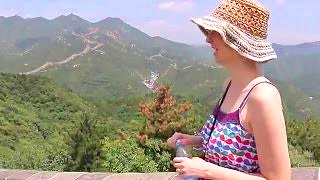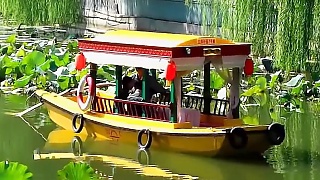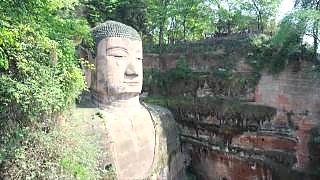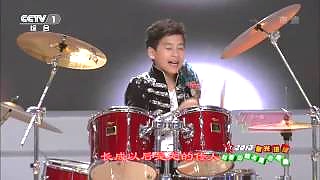
|
The delightful China Central TV concert of 2013 ...
* Children of the Dragon (HOU Dejian, 侯德健), performed by Green QIU (QIU Wutong, 邱梧桐, 10 years old), Xiaolong (小龙, 11 years old), and JIN Zhuofan (金卓凡, 12 years old), all from China.
* Memory (musical Cats, Andrew Loyd Webber), performed by Jessie Hillel (11 years old) from New Zealand.
* You Raise Me Up, performed by LI Zewei (李泽维, 11 years old), ZHONG Chenle (钟辰乐, 11 years old), and LIU Bo (柳博, 10 years old), all from China.
* Turkish March (土耳其进行曲), by Wolfgang Amadeus Mozart (莫扎特), performed by ZOU Yufei (邹宇飞, 4 years old), WANG Liya (王丽雅, 11 years old), ZHU Zihe (朱梓赫, 8 years old), and YE Zifan (叶子凡, 12 years old), all from China.
* He is a Pirate, performed by CHEN Qingli (陈庆丽) from Hong Kong, China.
* I can fly, performed by Teressa from the U.S. (5 years old). Teressa is of Chinese and American heritage.
* Baby, performed by NIE Jieming (聂杰铭, English name: James Robert Nicol, 11 years old) from Australia.
* Spicy Girl, performed by Tianyuan (Chinese name:恬源, English name: Tyerra, 8 years old) from the U.S. Tianyuan is of Chinese and American heritage.
* Kalinka, performed by Russian children from Russian Embassy School in Beijing, and Xiao Ding Dang Childrens Choir of the Russian Culture Center in Beijing.
* Love to Flowers and Earth Song, performed by Fairies in Rain Forest (Chinese name:雨林精灵, Pinyin: Yu Lin Jing Ling). Fairies in Rain Forest is formed by two sisters: Linda LEE (李林妲, LI Linda) and Wanda LEE (李宛妲, LI Wanda) of Chinese and German heritage. Their fater, Josef Margraf, is a German ecologist. Love to Flowers is a folk song of ethnic Hani Chinese, sung in the Hani language. Earth Song by Michael Jackson.
* I Just Can't Wait to be King (from The Lion King), performed by the Popcorn Band (Chinese name: 爆米花乐团) from China and Chelsey Mark (Chinese name: 麦小龙, Pinyin: MAI Xiaolong) from Canada; Chelsey Mark is a well-known host of CCTV.
* You'll Be in My Heart (Phil Collins), performed by Ming-An Fasquelle (11 years old, French-American, born in France, raised in Beijing).
* I Have a Dream (Abba), performed by WANG Xinyi (王馨怡, 10 years old) from China.
* ABC (Jackson 5) performed by SH' Boss Boys from the U.S.
* We Will Rock You (Brian May / Queen), performed by Xiaolong (小龙), Huolong (火龙), LI Shuxi (李淑昕), ZHENG Xiao (郑宵), Tianyuan (恬源), 奥斯卡 (Oscar), 成宇朵儿 (CHENGYU Duo-Er), Popcorn Band (爆米花乐队), Zaizai (仔仔), and Kent Niepert (Xiaolong's dad).
|



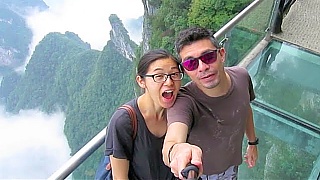


![`US-sponsored separatist groups, backed by Washington for decades, are being mobilized to attack and undermine activities related to the BeiJing 2022 Olympics, starting with the torch relay in Greece. I explain the background of the “Free Tibet” movement and how the US government, through the CIA, backed it as early as the 1950s and transferred its operations to the National Endowment for Democracy (NED) [or `Dominion` / enslavement]. ` With The New Atlas . . . Bonus films - terror activities by US-backed `opposition` in Myanmar . . . Bonus film 2 - subverting the `left` . . . Bonus film 3 - on Ecuador . . . Bonus film 4 - on Cambodia . . . They say : `How dare you put your face in front of my fist ! Serve your master. Or else. ` More . . . On the US plan to nuke Chinese cities - as revealed by Daniel Ellsberg, famous for the `Pentagon Papers`, with NuMuves . . . On the Falun Gong cult . . . *** Planning war on China - part 11 - don't miss it ***](http://img.youtube.com/vi/2w31eNNcGVU/mqdefault.jpg)







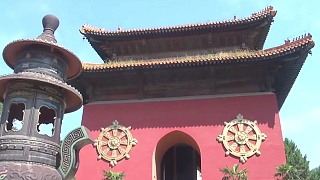

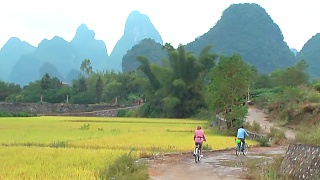

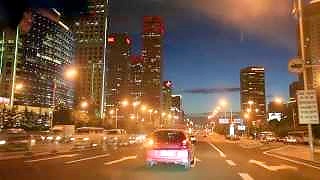



![All restaurants will have dishes to cater for vegans and vegetarians but to be certain there`s no trace of meat or meat oil or egg in your food, head to a specialized vegetarian restaurant. There are quite a few in all major cities but you`ll need to look them up on the net. Some of these are run by devotees, some exist to cater to Buddhist people. Some have `meat substitutes`, such as vegetable based chicken, duck, prawns, etc., made from things like bean curd and mushroom, and are remarkably good. In these films, Nadine shows us some of what you can eat in BeiJing ... Hot tip : A great dish you can get at many restaurants is Di San Xian 地三鮮 (literally, `3 things from the earth`) - stir fried potato, aubergine (egg-plant) and green pepper. Mildly spicy, filling, comforting and delicious; a great choice for anyone. Bonus film - a wander through BeiJing and a trip to the Great Wall of China (GuBeiKou and SiMaTai) ... Plus, some vegetarian Chinese recipes ... [videogallery id=PLGjygoUcwWPf1FIojEsG9aLCEn6JhhBBD type=playlist c=3 n=9] Vegan and vegetarian dining in China 中国](http://www.beijingbuzzz.com/fd111.jpg)


